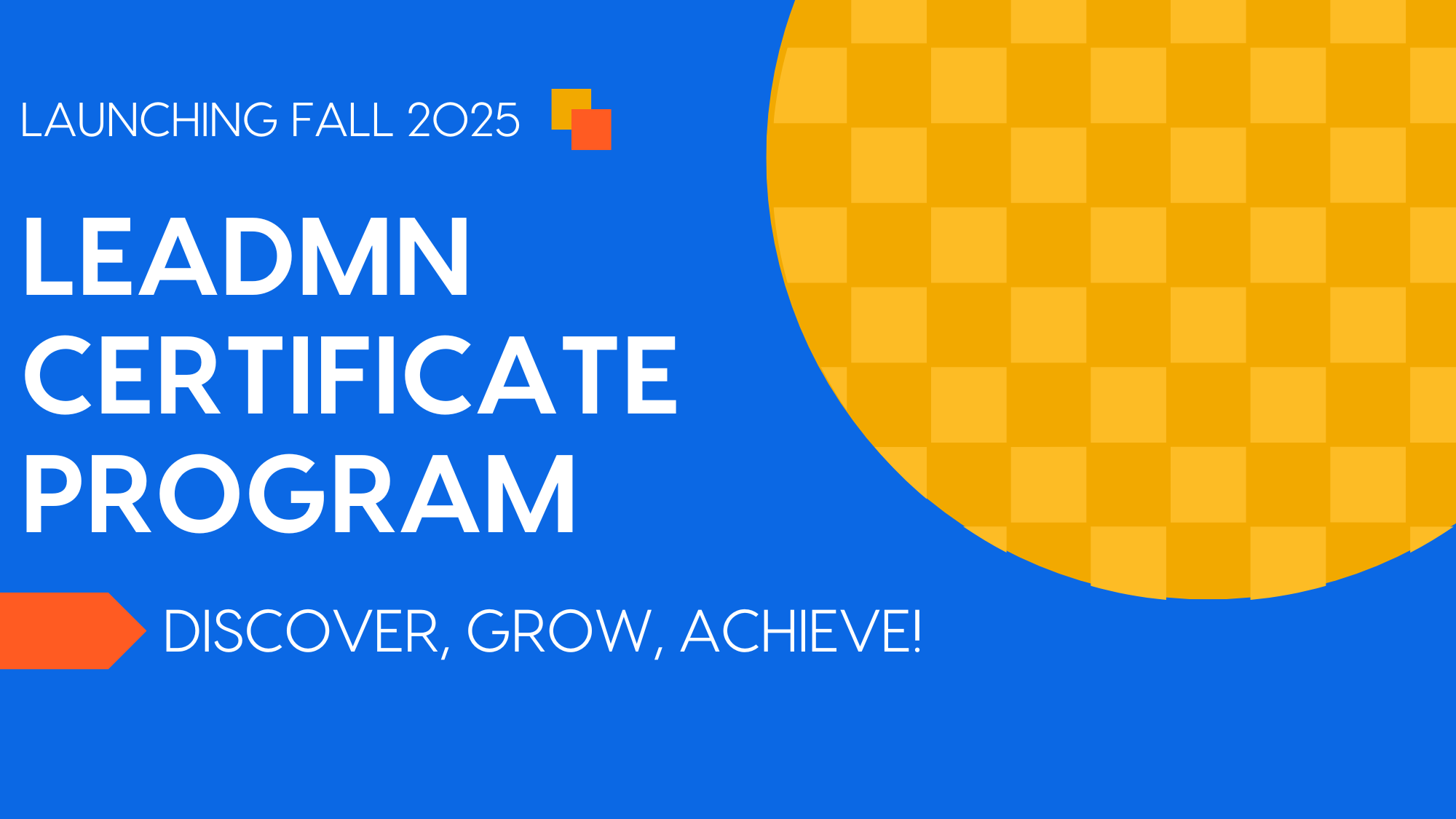LeadMN Certificate Program
A free virtual program designed to help students build professional skills and support their personal and academic journeys through a series of online tracks that include workshops, discussions, and interactive assignments.
Find information about our 5 tracks by clicking the links below, and begin your learning journey!
Program Details
- Open to all two-year community and technical college students in the Minnesota State system.
- A flexible, remote learning experience to ensure accessibility for everyone.
- Welcome videos and syllabi are available starting September 8th, 2025 with tracks opening fully on September 22nd, 2025. Tracks are available through May 18th, 2026
- 5 total track options, 3 launching in fall 2025, 2 launching in spring 2026.
Why Offer this Program?
Not all students are able to attend LeadMN events in person due to financial constraints, a lack of transportation, an overscheduled calendar or the timing of our events not aligning with their schedule, and several other barriers that come with being a student.
The Certificate Program allows students to access LeadMN’s educational and leadership-building content on a time frame that works for their schedule and area(s) of interest. Students are able to select from 5 different certificates, encompassing a total of 28 workshop options.
